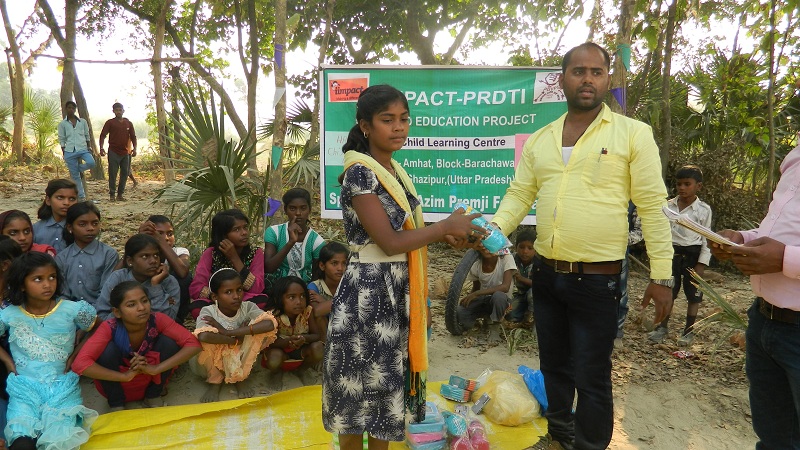The Purvanchal Rural Development and Training Institute (PRDTI), a Ghazipur based civil society organization (CSO) that focuses on promoting and strengthening communities using a rights-based approach, announces the launch of its global wing, giving for Humanity.
As an immediate priority, Giving for Humanity aims at extending 360 degree support to covid-19 affected individuals around the world. Starting their operations in India, the foundation plans to make use of existing resources to make masks, sanitizers and provide dry rations to affected societies. The organization also plans to collaborate with other nonprofit organizations in India and abroad to provide cash and in-kind relief to affected individuals who have lost their jobs and means of basic food and medical needs due to the coronavirus pandemic. Giving for Humanity plans to use a systematic data-driven approach to identify communities that are in dire need and that have not yet been approached with aid with the aim of reaching up to 2 million people in its first phase of relief activities.
Kapil Dev Kesari shared, “Every bit of effort and intention counts in a situation like COVID-19 where daily means of living has become a challenge to millions of daily wage workers and marginalized societies. Our primary concern is to ensure that we make masks and sanitizers available to individuals so that they can be self-armed with protection. We aim to reach the innermost sections of the society where neither aid nor awareness is accessible.” We plan to use our infrastructure and network with relevant supporting entities to provide aid to societies in need.
About Giving for Humanity:
Giving for Humanity is a voluntary organization from Eastern Uttar Pradesh, India, working at the grass root levels towards bringing catalyzing change in marginalized communities through the upliftment of communities, and offering education and entrepreneurial opportunities. The vision of Giving for Humanity is to establish an autonomous self-reliant, healthy society where sustainable communities can experience equal rights, exploitation-free living.

